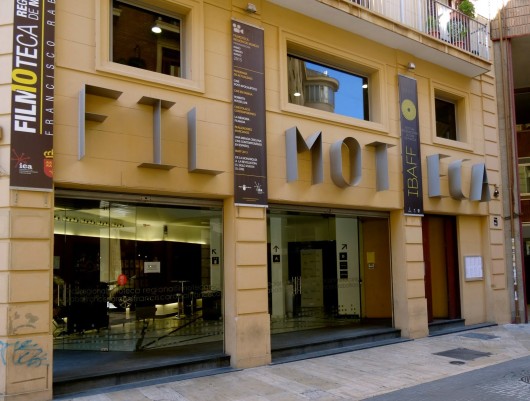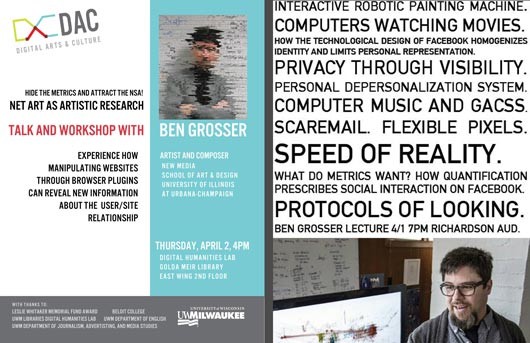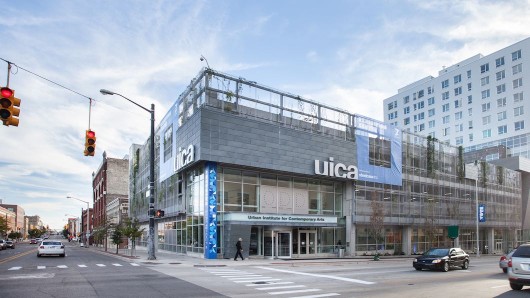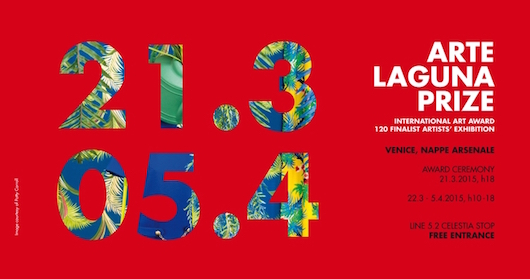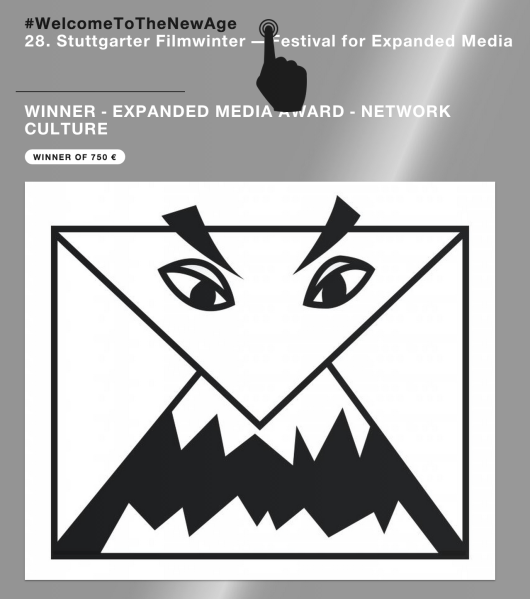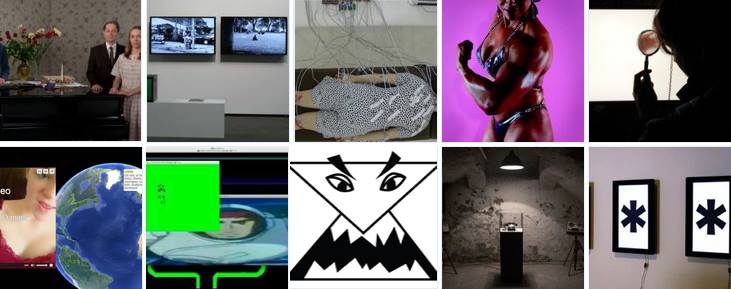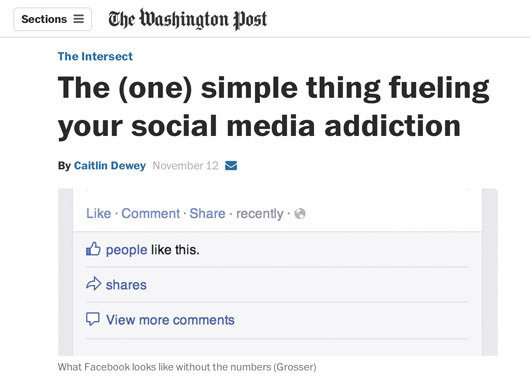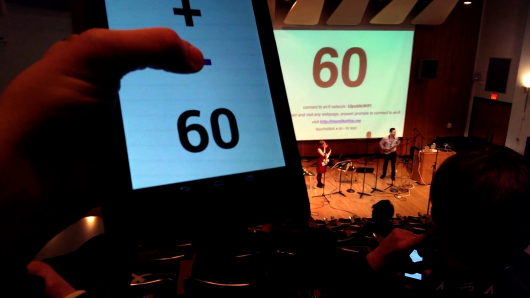
Audience Interface for More Like This
I am quite pleased to be the guest artist and composer at this year’s Contemporary Arts Festival at New Mexico State University. There I will join collaborators and saxophonists Rhonda Taylor and Kelland Thomas to produce the second performance of More Like This, my work for saxophones, artificial intelligence, live electronics, and participatory audience.
The performance of More Like This is just one piece in a concert of my works, both music and art. The program is:
Not Pitch (1995)
for baritone saxophone and computer-generated tape
Rhonda Taylor, baritone saxophone
mix whit (1997)
for computer-generated tape
Uninduced Approximation (1991)
for Bb trumpet and computer-generated tape
Pancho Romero, Bb trumpet
lotted ebb (1998)
for computer-generated tape
Computers Watching Movies (2013)
computationally-produced HD video and stereo audio
INTERMISSION
Touch Me Now (2014)
assembled Vine video loops with audio
More Like This (2014)
two saxophonists, artificial intelligence, live electronics, and participatory audience
Rhonda Taylor, saxophones Kelland Thomas, saxophones
The concert is Friday, 27 February, at 7:30pm (MST). Before the concert, at 6:30pm, I will give a pre-concert talk in the hall as well. In case you aren’t in New Mexico that night you can still catch the event on live stream. Watch the Facebook event page for more details as the night approaches.

